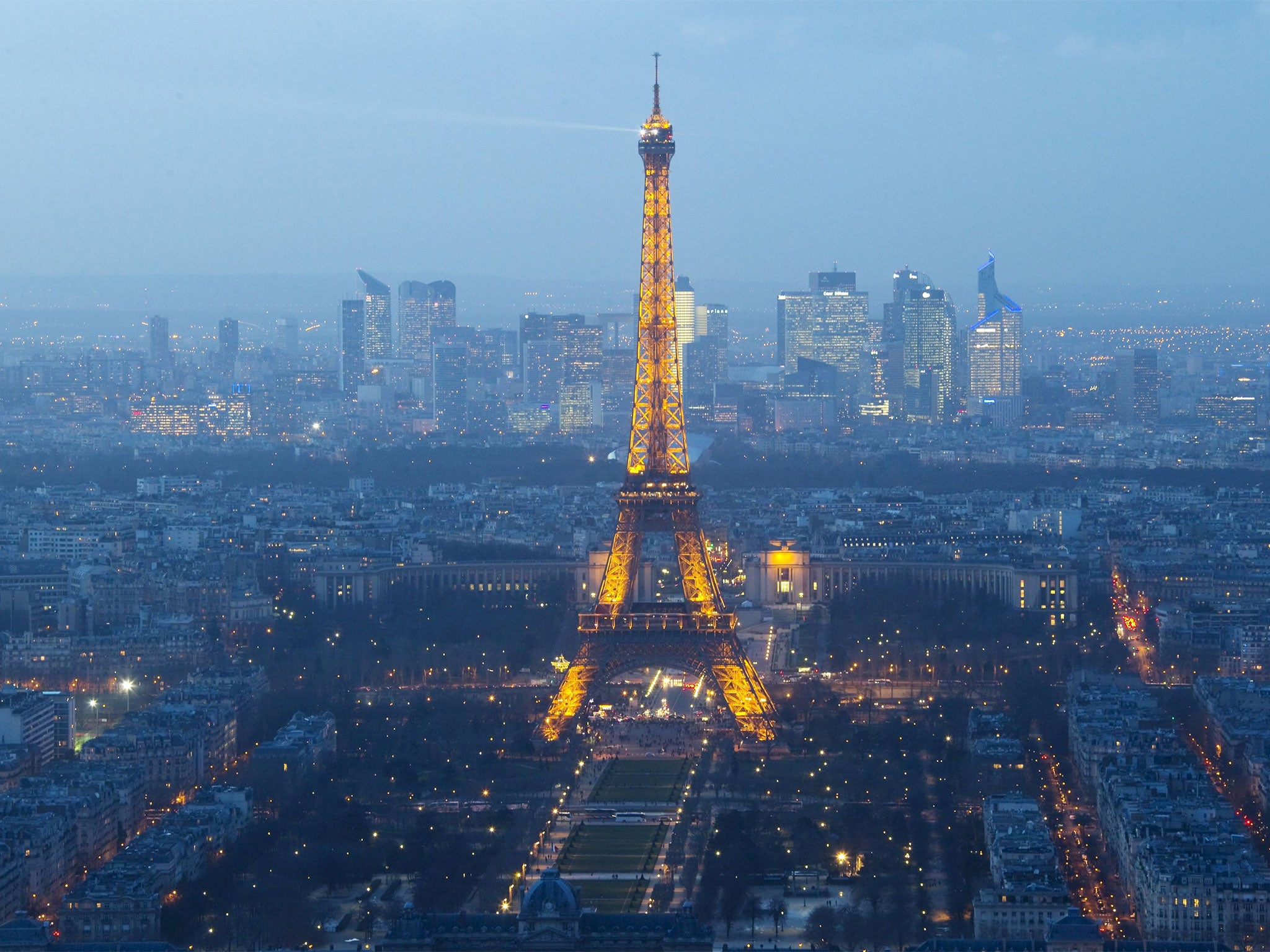Paris travel Q&A: How will terror attacks affect travel and tourism?
Simon Calder gives the low-down on what the attacks mean for one of the most popular destinations in the world

For the second time in a year, the capital of the world’s leading tourist nation has been the scene of coordinated mass murders. The latest atrocity in Paris has traumatised the city and its people, and has profound implications for travellers. As security on all forms of transport is stepped up, tourists and business travellers with forward plans to visit the French capital are considering their options.
Q President Hollande ordered France’s borders to be closed. What does that mean?
Travel to and from France continues more or less as normal. What the president meant was that full border controls would be established on the land frontiers with its neighbours, with passports or ID cards instituted for travel from Schengen countries by road and rail.
These checks were actually being temporarily introduced for a month, as part of the security precautions head of the UN Climate Change Conference starting on 30 November. They may now be extended.
Q What effect is there on transport in Paris itself?
Some Metro stations near the massacre locations are closed, and RER (suburban train) and many bus services are disrupted. Security has been stepped up at transport terminals, notably the city’s airports and main train stations, and on trains; in August there was an attempted terrorist attack on an Amsterdam-Paris high-speed train.
The world mourns Paris attacks - in pictures
Show all 25Eurostar services through the Channel between Paris Gare du Nord and London St Pancras are operating normally, but passengers are advised to check in an hour before departure, instead of the usual 30 minutes. Random searches of other rail passengers may be instituted.
Q How long will tourist attractions be closed for?
In the wake of the attacks, national museums and attractions such as the Eiffel Tower were closed. Many will remain so on Monday 16 November, which is closing day for most of them anyway; Disneyland Paris and the Louvre will also be closed on Tuesday. After that it is likely that everything will open as normal.
Q What are the options for travellers who are booked to travel to the city imminently but wish to postpone?
Since flights and Eurostar trains are operating normally, and the Foreign Office has not warned against travel to Paris, there is no obligation for transport operators to vary their normal terms and conditions, but many of them did so for travellers at the weekend. Most of those offers have now expired, but Air France is allowing changes for passengers on Monday 15 November.
Flybe, which is offering passengers booked to travel to Paris on 16 or 17 November the chance to postpone, change destination or obtain a credit note for future travel by calling 0371 700 2000 (from outside the UK +44 1392 683 152).
Q What about Eurotunnel vehicle services and cross-Channel ferries?
Services are running normally. Eurotunnel told The Independent: “Customers can change times and dates of travel at no charge. The only cost being if they rebook for a busier time, when the crossing itself would be more expensive. In that situation we just ask that they pay the difference in the ticket price.”
Q When will it be appropriate to visit Paris again - and would it be wise?
Many tourists may feel they could be trespassing on the grief of the city in mourning. But following the atrocities committed in Madrid in 2004 and London in 2005, visitors were swiftly back. Ted Wake, managing director of the city-break specialist, Kirker Holidays, told The Independent: “Anyone travelling to paris in the coming weeks will be given a very warm welcome by the locals.”
Certainly anyone planning a December break in the city should plan to carry on as normal - though they should be prepared to find a heavy security presence, particularly during the UN climate talks (30 November-11 December).
Q What will the long-term effects be?
Paris will remain one of the most-visited cities in the world. However, the combined effect of the two massacres in the city this year could change the face of tourism in the capital and beyond.
While the nature of big, open cities means that terrorist attacks can never been entirely ruled out, security at popular locations is likely to be stepped up. national monuments and tourist sites throughout France was already tight following the Charlie Hebdo massacre and will be stepped up still further. The existing rules on identity checks are likely to be more tightly enforced. Visitors may be asked to prove their identity when asked or within four hours at a police station.
In the longer term, France and other Schengen countries are likely to reintroduce permanent passport and ID checks in a bid to have more control over their borders.
Q Within two weeks a Russian plane has crashed in Egypt’s Sinai desert, possibly because a bomb was planted, and now Paris has been hit. Are these more dangerous times for travellers?
The cause of the loss of 224 lives in the Metrojet tragedy is still not certain, but it could have been an act of terrorism; in the wake of the crash, British airlines are not allowed to fly passengers to Sharm el Sheikh. Yet despite these appalling, high-profile events the risk profile for most travellers is unaffected; a large majority of the British travellers who sadly lose their lives abroad are killed on the roads or are victims of accidents in water.
Statistically, the dangers of travel are in long-term decline.
Subscribe to Independent Premium to bookmark this article
Want to bookmark your favourite articles and stories to read or reference later? Start your Independent Premium subscription today.

Join our commenting forum
Join thought-provoking conversations, follow other Independent readers and see their replies